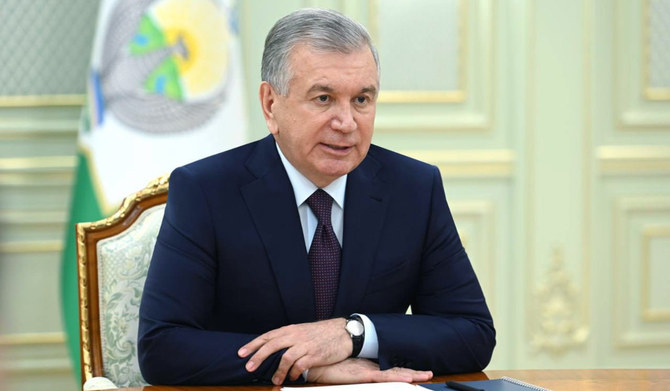Uzbekistan, a Central Asian country with a long history and rich cultural heritage, has undergone significant changes and reforms over the past few years under the leadership of President Shavkat Mirziyoyev. Mirziyoyev became president of Uzbekistan in 2016 following the death of long-time authoritarian leader Islam Karimov, marking the first peaceful transfer of power in the country’s modern history.
President Mirziyoyev inherited a largely closed society and economy from his predecessor. Over 25 years, Karimov had consolidated his rule by clamping down on dissent, stifling civic freedoms, and maintaining rigid control over most aspects of public life. The economy remained dominated by state-owned enterprises and was mostly closed off to foreign investment and trade. Poverty and unemployment were widespread, especially in rural areas.
Upon taking office, Mirziyoyev pledged to implement reforms and open up Uzbekistan to the world. He stated his top priorities were improving living standards, encouraging entrepreneurship and innovation, attracting foreign investment, and modernizing key sectors like energy, agriculture and manufacturing.
To achieve these goals, Mirziyoyev initiated a wide-ranging reform agenda focused on liberalizing the economy, strengthening the rule of law, empowering citizens, and improving relations with neighboring countries. Some of the major changes he has overseen include:
Economic and Business Reforms
- Lifting barriers to trade and investment, cutting red tape, and privatizing state assets to encourage private sector growth and entrepreneurship. Uzbekistan is now open for business.
- Attracting over $8 billion in foreign direct investment since 2016 from companies like General Motors, Hyundai and Lukoil. Modernizing energy infrastructure and increasing gas exports.
- Establishing special economic zones with tax incentives to attract manufacturing and tech companies. Job creation has boomed in these zones.
- Reducing taxes and fees for small businesses while also providing training programs and better access to credit from banks.
- Launching new stock exchanges in Tashkent and improving capital market regulation to facilitate access to financing.
Improving Governance and Rule of Law
- Reforming the judicial system to strengthen independence of judges and increasing transparency of courts. Better protecting rights of defendants.
- Cracking down on corruption, including prosecuting high-level officials for graft. Streamlining bureaucratic processes to reduce bribe-taking.
- Decentralizing decision-making to give more budget authority to regional and local officials. Empowering local government leaders.
- Lifting restrictions on media and allowing greater press freedom. Thousands of websites, including Western news media, were unblocked.
Social Reforms
- Increasing investments in healthcare, education and infrastructure. Raising pensions and public sector wages.
- Establishing a Ministry of Pre-School Education to expand early childhood education across Uzbekistan.
- Promoting gender equality through new laws, banning child labor, and running empowerment programs for women. Appointing women to high-level posts.
- Improving labor rights and working conditions. Allowing independent NGOs like Human Rights Watch to operate within the country.
Foreign Policy
- Normalizing relations with neighbors like Kyrgyzstan and Tajikistan to boost regional trade. Engaging with Afghanistan’s government.
- Deepening ties with the United States, European Union, Russia, China, South Korea and other partners. Aiming to make Uzbekistan a hub linking East and West.
- Working with international financial institutions like the IMF and World Bank to implement reforms. Hosting conferences to attract investment.
These efforts have led to rapid improvements in Uzbekistan’s economy, governance and standing in the world under Mirziyoyev’s leadership. GDP growth has exceeded 5% annually, while poverty rates, unemployment and inflation have dropped sharply. New businesses are opening every day, and entrepreneurs are seizing opportunities. With expanded freedoms, Uzbekistan’s civil society is blossoming as citizens mobilize to address local issues. Opinion polls show Mirziyoyev enjoys widespread public support as most Uzbeks approve of his reform agenda.
At the same time, challenges remain. The economic transition has been disruptive for some industries leading to job losses. Human rights groups want further improvements in areas like freedom of expression and the treatment of dissidents. Not all local officials have embraced Mirziyoyev’s reforms, hindering progress in their regions. Nevertheless, the President has demonstrated a willingness to listen to criticism and adjust policies when needed to achieve his modernization vision.
Going forward, Mirziyoyev faces the tasks of institutionalizing these reforms so they are sustainable beyond his tenure, while also balancing economic liberalization with protections for workers and low-income groups. To enable the next stage of development, Uzbekistan will need to continue improving access to quality education, healthcare and the internet – the building blocks for an innovative, knowledge-based economy.
But the considerable progress made since 2016 illustrates Mirziyoyev’s pragmatic leadership in putting Uzbekistan on the path to becoming a more open and prosperous nation. The emerging “New Uzbekistan” under his presidency provides hope for the country’s youthful population who will shape its future. With continued reforms, Uzbekistan is poised to realize its enormous potential and become a economic and cultural bridge between Europe and Asia.
FAQs
The current President of Uzbekistan is Shavkat Mirziyoyev. He assumed office in 2016 after the death of long-time authoritarian leader Islam Karimov.
The president of Uzbekistan is elected every 5 years. Mirziyoyev was elected to his first term in the December 2016 election.
Mirziyoyev has initiated wide-ranging reforms to liberalize Uzbekistan’s economy, strengthen the judicial system, empower local governments, improve media freedom and civil liberties, promote gender equality, and open the country to foreign investment and trade.
Mirziyoyev previously served as Prime Minister of Uzbekistan from 2003-2016 under former President Karimov. He was considered Karimov’s right-hand man and a potential successor. Before that, he had a career in regional government starting as a local mayor in the 1990s.







